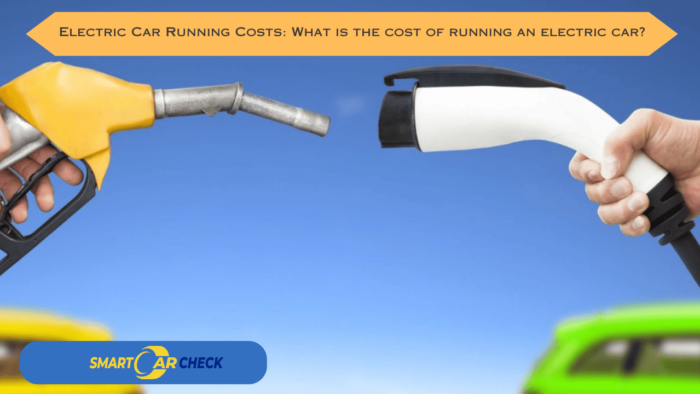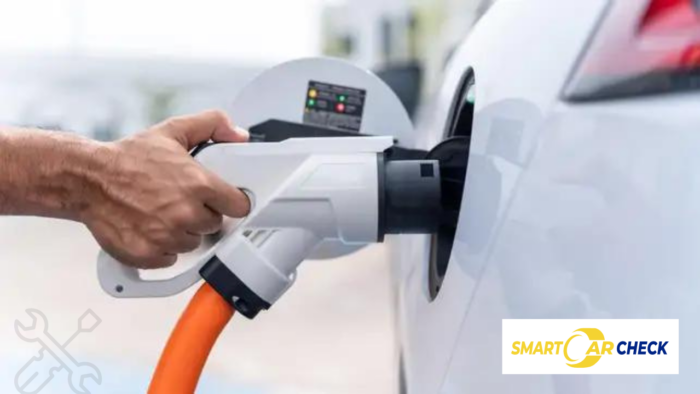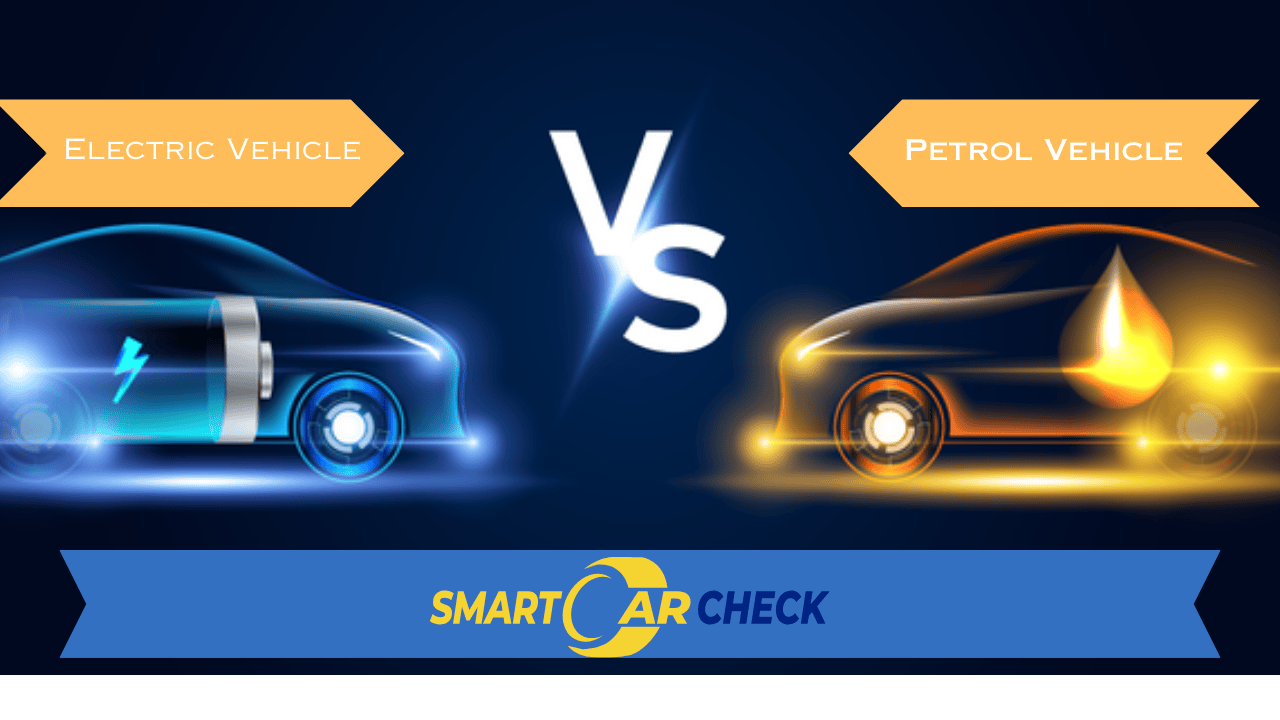With the increase in the cost of living in the UK, a lot of people are looking for how to save as much money as they can and significantly cut down unnecessary expenses. This has led to people asking about the cost of running an electric car vs petrol in the UK. Is going green significantly cheaper? Let’s find out.
Electric Car Running Costs: What is the cost of running an electric car?
The cost of running an electric car varies from person to person and from car to car. Similar to petrol and diesel cars, the cost of running an electric car depends also on the model, make, and vehicle specifications. So, if you’re in the market for an electric car, you need to keep this in mind while making your decision.
Investing in a car is a major financial decision, and understanding the upfront costs is crucial. Electric cars have traditionally been perceived as more expensive, but with government incentives and decreasing manufacturing costs, the price gap is narrowing. We’ll break down the numbers to help you make an informed decision.

Cost of charging an electric vehicle in public
How much does it cost to charge at public charging points? To check the cost of running electric cars, let’s analyze how much it costs to charge an EV in public – chargers found at car parks, motorway services, petrol station forecourts, and others. There are two major cost-influencing factors to consider when charging electric vehicles in public:
- The size of the battery
- Cost of electricity
Keeping this in mind when you want to charge your electric car helps you narrow down costs. For example, an EV with a 100 kiloWatt (kWh) hour battery will cost more to charge than a 50kWh battery. In this case, with the same cost of electricity, charging the larger battery will cost you twice as much as it should for the smaller one.
For example, if the average cost of charging an electric car with electric car charging points is 74p/kw, then:
Electric Vehicle A (100 kWh battery)
- Charging Cost = Battery Size (kWh) * Cost of Electricity per kWh
- Charging Cost = 100 kWh * £0.74/kWh
- Charging Cost for EV A = £74.00
Electric Vehicle B (50 kWh battery)
- Charging Cost = Battery Size (kWh) * Cost of Electricity per kWh
- Charging Cost = 50 kWh * £0.74/kWh
- Charging Cost for EV B = £37.00
Public charging is usually the first and most popular way to get an EV charged and it is really expensive and adds a lot to the cost of running an electric car compared to domestic charging.
READ ALSO: The Importance of Registration Number Checks for UK Car Buyers

Cost of charging an electric car at home
If you want to beat down car running costs, then you should consider electric car charging at home and at off-peak hours (between 12 am and 4 am), when the costs of charging are relatively cheaper. On average, off-peak charging may cost you 45 pence per kWh which is significantly more affordable than public charging. At this rate, from our previous example,
Electric Vehicle A (100 kWh battery)
- Charging Cost = Battery Size (kWh) * Cost of Electricity per kWh (off-peak)
- Charging Cost = 100 kWh * £0.45/kWh
- Charging Cost for EV A = £45.00
Electric Vehicle B (50 kWh battery)
- Charging Cost = Battery Size (kWh) * Cost of Electricity per kWh (off-peak)
- Charging Cost = 50 kWh * £0.45/kWh
- Charging Cost for EV B = £22.50
You can see how much electricity cost can be saved in a day by charging at home. You will, however, need to install a home charge point and with £800, you should be able to get one.
“DID YOU KNOW?
According to Cinch, the average cost of running an electric car is £1,264, compared to £1,843 for a petrol car. ”
Free Electric Car Charging
With some opportunities to charge EVs for free, the cost of running an electric car just got cheaper compared to petrol cars. Some locations and chargers such as the 7kW and 22kW chargers at Tesco supermarkets are free to use.
Some employers also provide charging infrastructure for workers to charge their vehicles during work hours for no charge at all.
READ ALSO: Fuel Cost Calculator: Guide to Calculate Fuel Cost and Save Money
Electric Car Road Tax Costs
For years, car road tax has been a topic that was mentioned only when it comes to petrol cars since EVs emit no CO2. However, with recent developments, electric cars in the UK will also be subject to the road tax or Vehicle Excise Duty (VED from 2025 onwards.
This isn’t the best news for EV owners as it increases the car running costs, but fully electric cars will pay the lowest first-year rate of £10 per year, and then in subsequent years they will pay the standard rate of £180 per year.
Electric Car Insurance Costs
While talking about the cost of running an electric car, you need to consider electric car insurance costs. This is where things get a bit pricey and the cost to run electric cars increases. Insuring an electric car in the past used to be significantly expensive compared to petrol-powered cars, costing thousands of pounds per year.
Now, the cost of the vehicle isn’t the only determining factor for insurance premiums. Both the driver’s age and experience can bring down the cost of insurance. Currently, the average electric car insurance cost is around £654, really close to petrol cars with an average insurance cost of £561 per year, according to Nimblefins.
Electric Car Maintenance Costs
When it comes to maintenance costs, electric cars are at an advantage over petrol cars. The cost of maintenance for electric cars is significantly cheaper than you think.
Electric cars don’t need oil changes, campbelt changes, battery replacements, and certain part replacements that petrol or diesel cars require. They also have fewer moving parts with fewer chances of wear, tear, and damage.
Based on statistics, electric cars have more frequent MOT passes compared to petrol cars, and electric car batteries come with longer warranty coverage. With £100, you can cover maintenance costs for an electric car for a whole year. Compared to petrol cars, using up to £273 per year, electric cars are a better alternative.

Exemption from Congestion Charge and ULEZ Charge
Another benefit of having an electric car is the exemption from the congestion charge and Ultra Low Emission Zone (ULEZ) charge. This exemption was introduced in 2019 and has since saved electric car owners some money.
They don’t have to pay the:
- London congestion charge of £15 a day
- ULEZ charge of £12.50 a day
To be eligible for the congestion charge exemption, drivers must register their fully electric vehicles with Transport for London (TfL) for a fee of £10, with this registration requiring renewal on an annual basis.
If you can afford the initial purchase price of an electric car, you can rest assured that electric car running costs are relatively affordable.
Buying a Used Electric Car? Get a Car History Report!
Understanding the cost of running an electric car isn’t enough if you are buying an electric car. To be sure that you are making the right decision, a car report with the reg number is the first document you need to check.
A car history report shows every detail about any used electric car including the:
- Vehicle specifications
- Engine details
- Ownership records
- Weight and dimensions
- MOT and tax due
- Mileage discrepancies
- V5C registration details
- MOT history
- Theft records
- Outstanding finance
- Written-off status
- Auction records
- Electric fuel system
- Electric fuel delivery, and more.
With a report, you are at an advantage during the car-buying process and can easily spot vehicles with potential damages or cars that aren’t roadworthy. Make the best choices with a car reg check today.
Frequently Asked Questions
How much does it cost to drive 100 miles in an electric car in the UK?
The cost of driving 100 miles in an electric car in the UK depends on various factors, including the specific model, the efficiency of the vehicle, and the cost of electricity per mile. On average, electric vehicles (EVs) in the UK can cost around £4 to £7 to cover a distance of 100 miles, making them more cost-effective compared to many petrol cars.
How much does it cost to fully charge an electric car in the UK?
The cost to fully charge an electric car in the UK varies based on the battery size, charging method, and local electricity rates. Using an average electric car cost of £0.74 per kWh for public charging, the charging cost for a typical EV with a 60 kWh battery would be around £44.40. Home charging during off-peak hours, which is often cheaper, could be around £27 for the same vehicle.
Is it cheaper to run a petrol or electric car?
In the UK, electric cars generally offer lower running costs compared to petrol cars. While the upfront cost of purchasing an electric car might be higher, factors such as lower fuel costs, reduced maintenance expenses, and government incentives contribute to making electric cars more economical over the long term. The specific cost comparison varies based on individual driving habits, local electricity prices, and government policies.
Is it cheaper to charge an electric car at home?
The cost to charge an electric car at home is often more affordable compared to public charging. On average, off-peak charging at home may cost around £0.45 per kWh, providing significant savings compared to public charging rates, which can be higher. Additionally, the convenience of home charging eliminates the need to pay for public charging sessions, making it a more economical option for many electric vehicle owners in the UK.


